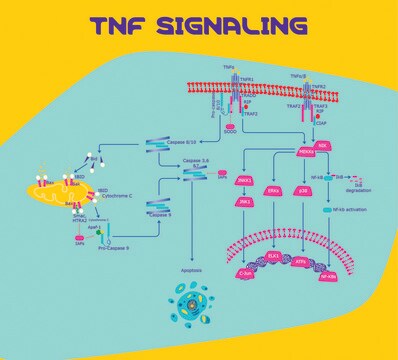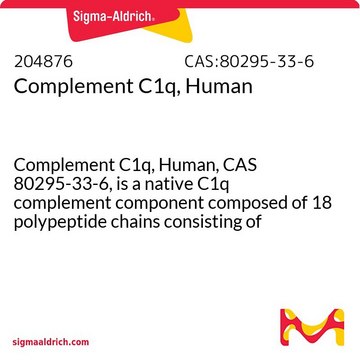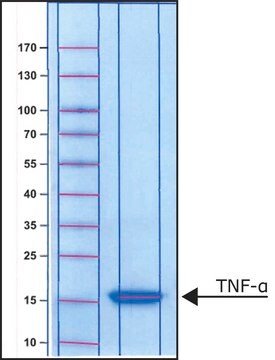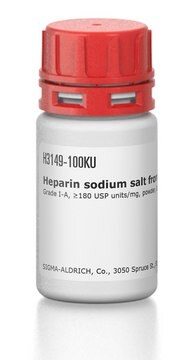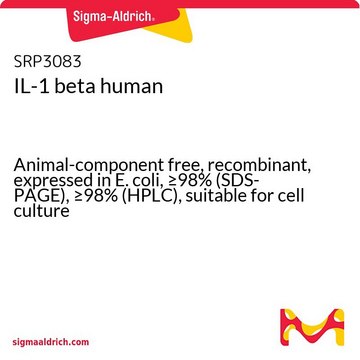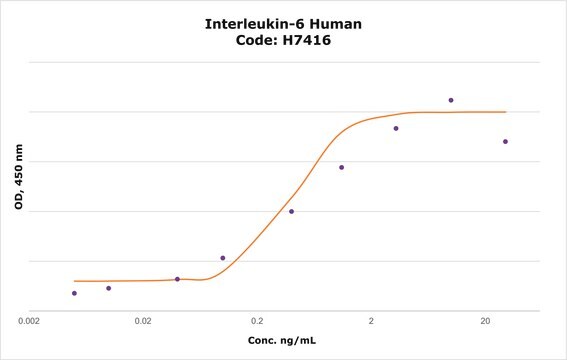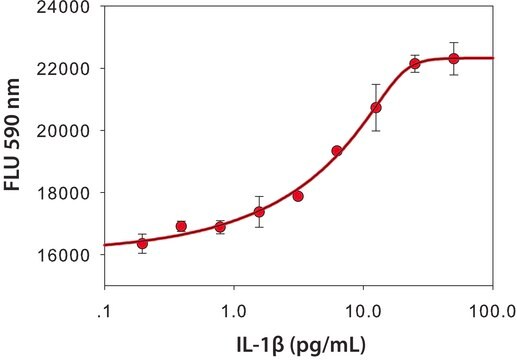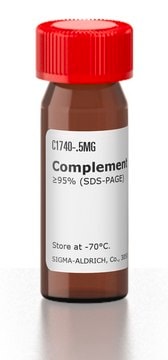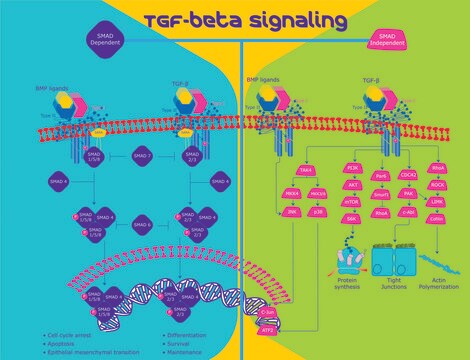I2778
IL-1α human
≥98% (SDS-PAGE and HPLC), recombinant, expressed in E. coli, lyophilized powder, suitable for cell culture
Synonym(s):
IL-1α, hIL-1α., Interleukin-1α human, Lymphocyte activating factor
About This Item
Recommended Products
Product Name
Interleukin-1α human, IL-1α, recombinant, expressed in E. coli, lyophilized powder, suitable for cell culture
biological source
human
Quality Level
recombinant
expressed in E. coli
Assay
≥98% (SDS-PAGE and HPLC)
form
lyophilized powder
quality
endotoxin tested
mol wt
~17 kDa
packaging
pkg of 2 and 10 μg
technique(s)
cell culture | mammalian: suitable
UniProt accession no.
storage temp.
−20°C
Gene Information
human ... IL1A(3552)
General description
Application
- to study its effects on human colorectal adenocarcinoma cells
- to stimulate primary human fetal retinal pigment epithelium (hfRPE) cells
- to pre-stimulate human THP-1 monocytes
Biochem/physiol Actions
Physical form
Analysis Note
Signal Word
Warning
Hazard Statements
Precautionary Statements
Hazard Classifications
Eye Irrit. 2 - Skin Irrit. 2 - STOT SE 3
Target Organs
Respiratory system
Storage Class Code
11 - Combustible Solids
WGK
WGK 3
Flash Point(F)
Not applicable
Flash Point(C)
Not applicable
Personal Protective Equipment
Choose from one of the most recent versions:
Already Own This Product?
Find documentation for the products that you have recently purchased in the Document Library.
Customers Also Viewed
Articles
The Interleukins comprise a disparate group of cytokines and growth factors that are produced by and released from leukocytes. Interleukin-1β (1L-1β) is released primarily from stimulated macrophages and monocytes and plays a key role in inflammatory and immune responses and may induce anti-tumor immunity.
Our team of scientists has experience in all areas of research including Life Science, Material Science, Chemical Synthesis, Chromatography, Analytical and many others.
Contact Technical Service